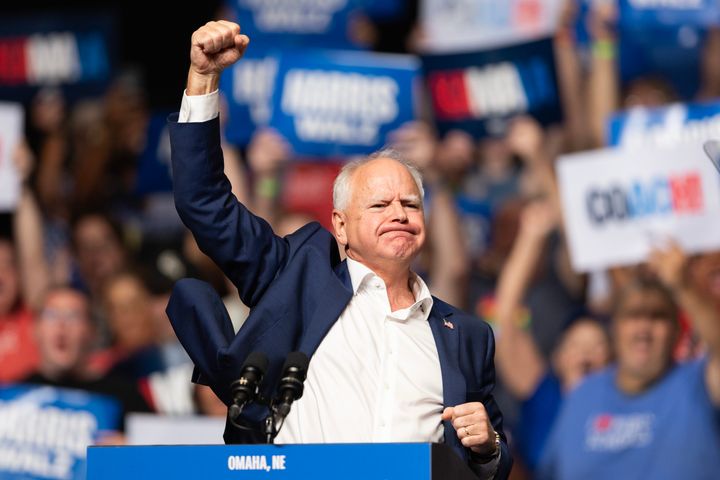With less than seven weeks to go until Election Day, Nebraska Republicans are considering passing a law to change how the state distributes its electoral votes in a bid to deny Democratic presidential nominee Kamala Harris any vote from the state.
Nebraska is one of two states, along with Maine, that does not allocate all of its electoral votes to the overall winner of the state. Instead, it provides two electoral votes for the statewide winner and then one vote for each of its three congressional districts.
The state’s 2nd Congressional District, centered on Omaha and its suburbs, has swung toward Democrats since former President Donald Trump was elected in 2016. Trump only narrowly won the district after GOP nominee Mitt Romney won it comfortably in 2012. In 2020, President Joe Biden won the district and its one electoral vote by 6.5%. The most recent polling of the district shows Harris with a similar lead to Biden’s 2020 margin.
The push to change Nebraska’s electoral vote allocation is being led by GOP Gov. Jim Pillen and Sen. Lindsey Graham (R-S.C.). Graham flew to the state to lobby state lawmakers at the governor’s mansion on Wednesday, and Trump himself reportedly called into their meeting to urge the switch.
Nebraska’s entire congressional delegation also endorsed the push in a letter on Wednesday to Pillen and John Arch, the Republican speaker of the state’s unicameral legislature.

U.S. Reps. Don Bacon (R-Neb.) and Adrian Smith (R-Neb.) told HuffPost they believed the push for a winner-take-all result remained three or four votes shy in the Nebraska legislature as of Friday morning. State Sen. Loren Lippincott, the lead sponsor of the measure, told the Omaha World-Herald Friday it appeared unlikely it would pass.
Smith claimed a unified slate of electors would give Nebraska “more of a say” in the presidential election.
“Right now, we have a diminished say with the way that the legislature has it in place,” Smith told HuffPost.
A winner-take-all result would give Nebraska Democrats less say in the presidential outcome. Bacon said splitting electors is a better way of representing the popular will, but only if all states do it.
“I wish every state did it our way. I think it’s fair. To have only two states doing it causes problems,” Bacon said, pointing to the fact that the Harris campaign has spent millions in the state while the Trump campaign has spent nothing.
If Nebraska changes how it allocates its electoral votes, it could have a significant impact on the outcome of the election. If Harris wins the three northern Blue Wall states of Michigan, Pennsylvania and Wisconsin and Nebraska’s 2nd Congressional District, then she wouldn’t need to win any other swing state to win the election. If, however, that one electoral vote from Nebraska instead goes to Trump, as it would in a winner-take-all allocation, Harris would need to win either Arizona, Georgia, Nevada or North Carolina to avoid a tied election.

The only other option to avoid a tied Electoral College vote in this scenario would be for lawmakers in Maine to change how they allocate electoral votes as well. Trump won one Electoral College vote from Maine’s 2nd Congressional District in 2016 and 2020. Polls show he is likely to win it again.
But it is likely that Maine would not be able to pass such legislation, even if its Democratic state legislative majority wanted to. In Maine, new legislation does not go into effect until 90 days after it is enacted. The election will take place in 45 days. State legislators can pass emergency legislation to go into effect immediately, but that requires a two-thirds majority in the legislature. State Republicans would likely block any such effort.
Lakshya Jain, cofounder of an election analysis firm called Split Ticket, said Friday that if Nebraska lawmakers change their electoral output, then Harris’ chances of winning the presidency drop from from 62% to 58% in Split Ticket’s model.
The Harris campaign declined to comment for this story.
Daniel Marans contributed reporting.
Disclaimer: The copyright of this article belongs to the original author. Reposting this article is solely for the purpose of information dissemination and does not constitute any investment advice. If there is any infringement, please contact us immediately. We will make corrections or deletions as necessary. Thank you.
